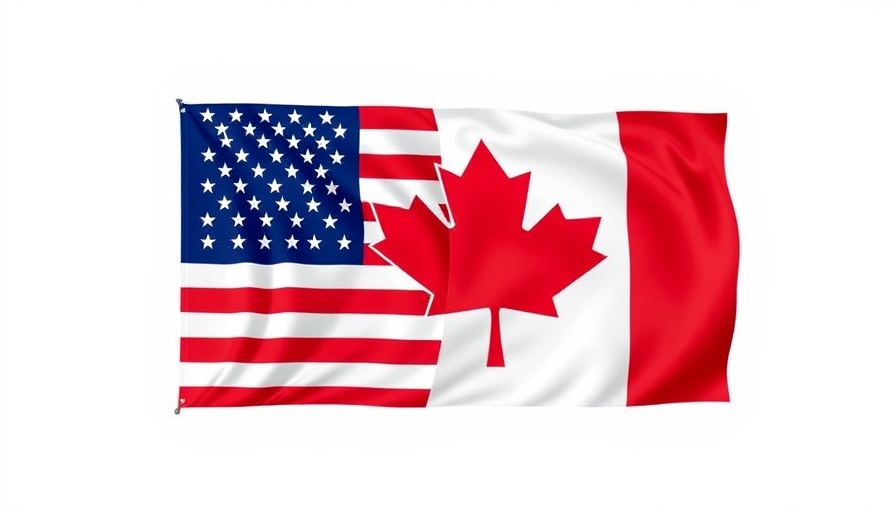
Why Canadians Are Hesitant to Cross the Border
In recent months, the flow of Canadians venturing into Washington State has reached an alarming low. Businesses that rely on cross-border traffic are feeling the impact. As reported by those on the frontlines, such as Josie Frodert, manager of Ship 49 in Blaine, Washington, revenue has plummeted dramatically—down 60% from previous years. The palpable fear among Canadians is palpable, stemming from a combination of economic concerns, rumored border military presence, and complicating tariffs on return trips.
The Economic Ripple Effect on Local Businesses
As fewer Canadians make the trek to shop in places like Blaine, local businesses are making drastic cuts to stay afloat. Seasonal patterns have shifted significantly; once bustling streets with eager shoppers are now eerily quiet. "We’re getting less than 30 to 40 packages a day, and that’s down from 150 to 200," Frodert shares, revealing the stark drop in customers. With reduced hours of operation and cuts to utilities, the dilemma facing these businesses is clear: survive or succumb to the pressures of diminished trade.
The Emergence of “Buy Canada” Initiatives
In a bid to counter the decline, many U.S. enterprises, especially those nestled close to the border, are launching campaigns urging Canadians to return. These “Buy Canada” initiatives aim to highlight the benefits of shopping locally and encourage cross-border traffic. However, it remains uncertain whether these efforts will be enough to overcome the fears gripping potential travelers.
Insights into Canadians’ Fears
The fear of crossing the border extends beyond economic factors; it is intricately linked to the broader socio-political climate. Rumors swirl about increased military presence and potential border restrictions, although officials have largely dismissed these claims. Customers at Ship 49 have voiced concerns regarding safety, tariffs, and confusing regulations when returning home. The added hassle of navigating border policies only fuels their reluctance.
Statistics Highlighting the Problem
According to the latest data from StatsCan, the statistics corroborate the experiences of local businesses. Border crossings have declined significantly, showcasing a worrying trend that could have lasting effects on economic relationships between the two nations. Since the pandemic, travel restrictions and changing health protocols have only exacerbated these declines, raising numerous questions about the future of cross-border movement.
Potential Long-Term Implications for Businesses
As businesses adapt to reduced traffic, strategies must shift toward retention of local customers while also enticing Canadians to return. The future of commerce in these border regions could depend on creating a more inviting environment for cross-border traffic, one that alleviates customer fears and reinforces community ties. Without effective strategies, many of these businesses risk fading into obscurity.
Lessons from Other Regions
The scenario currently unfolding in Washington State is reflective of crises faced by border towns globally. In similar situations, communities have found success by engaging directly with customers to rebuild trust and understanding. Lessons from these regions suggest the necessity of transparent communication and grassroots initiatives aimed at alleviating fears while promoting cross-border business transactions.
Conclusion and Future Outlook
The current climate surrounding cross-border travel paints a challenging picture for local businesses in Washington relying on Canadian patrons. Addressing the fears of potential travelers and implementing engaging community initiatives may cultivate a return to a more stable flow of commerce. As pressures mount, businesses must continually innovate and adapt to secure their futures. Meanwhile, Canadians and Americans alike hope for a time when borders represent opportunity rather than uncertainty.
 Add Row
Add Row  Add
Add 




 Add Row
Add Row  Add
Add 

Write A Comment